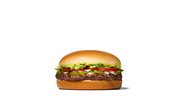News
Restaurant leaders: Think social responsibility is optional? Your customers don't think so
February 12, 2019
The B2B research firm, Clutch, just released a study that shows today's consumers typically associate restaurant brands most strongly with being socially responsible in their business practices at the corporate level, according to a news release. In fact, the firm said its research indicates that a substantial 62 percent of those surveyed expected restaurants to be socially responsible.
Other industry sectors highly associated with this corporate social responsibility factor include the tech and fashion industries, the firm said. Part of that association comes with the fact that these industries provide the kinds of products people use daily, Clutch explained. It builds a level of intimacy.
"With food, you're putting those things in your body," Jen Bemisderfer, managing director of the Seattle PR company, RH Strategic, said in the release. "With clothing, you're wearing it on your body or next to your body. It might seem that technology wouldn't fit along these lines, but we treat smartphones today as an extension of ourselves."
This is important to restaurateurs because the company said consumers expect their businesses to act differently, depending on how a brand is naturally positioned to support the well-being of individuals, as well as communities, both local and global. Specifically, Clutch found there is a strong association between restaurants and the public's expectations around efforts to prevent food insecurity.
In fact, 71 percent thought restaurants should address local food insecurity by feeding those in need, much like the Boston-based food truck brand, Chicken & Rice Guys, where operators said they viewed helping feed the community as a natural social responsibility and clear extension of their brand.
"Making and serving hot, delicious food is what we do best, so it's only natural we focus on issues of food insecurity and hunger within our community," Chicken & Rice Guys Business Manager Steve Collicelli, said in the release.
The company's 2019 PR and Corporate Social Responsibility Survey included 420 U.S. consumers who made a purchase within the last six months.
 ChatGPT
ChatGPT Grok
Grok Perplexity
Perplexity Claude
Claude








